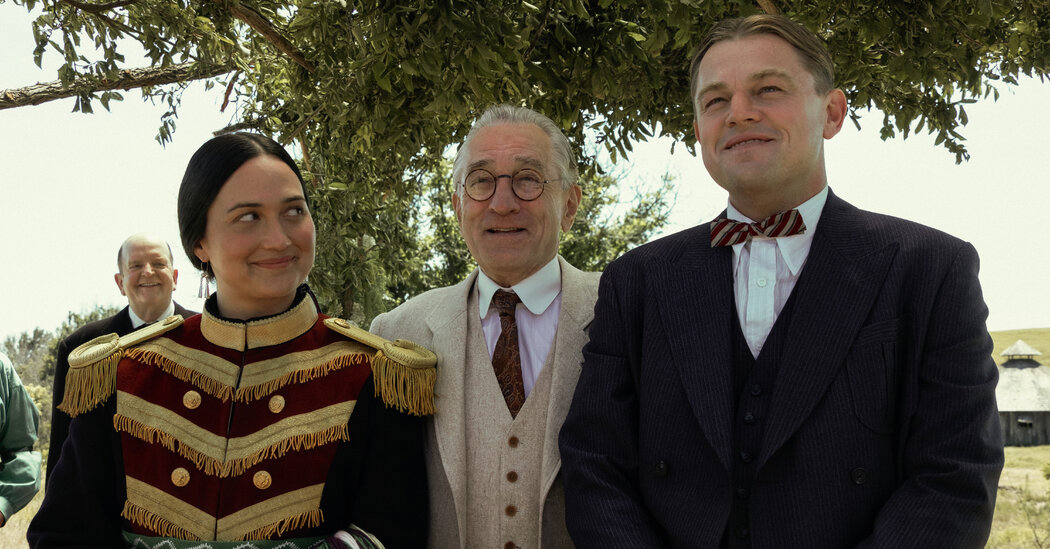For weddings a century ago, Swan said, “they would give away 50 or 60 heads of horse, feed 400 or 500 people for a week.” In one account from 1932, in Hominy, Okla., the father of the bride bought five new Chevrolet roadsters and gave them away, Swan added. “He said he spent some $50,000 on that wedding” — over $1 million in today’s dollars.
That level of festivity was generally reserved for the eldest sons or daughters of a family, during the era of arranged marriages, and was limited primarily to full-blooded Osage, like Mollie Kyle. (Such festivities would have been unlikely for an Osage woman marrying a white man, as she does in the movie, Swan pointed out — but that was Scorsese’s creative license.)
The scene is a moment of lightness in a story that is otherwise wrenching. In his book, Grann writes that there were probably far, far more deaths than the 24 that the F.B.I. arrived to solve.
O’Keefe grew up in Pawhuska, Okla., the capital of Osage lands. “Everybody has a connection to the story,” she said. “There isn’t a district that doesn’t, because everybody within our communities lost someone, our family members, due to strange circumstances.”
The wedding coats are one emblem from that time that has been rewoven again and again; after World War II, they were worn at the Osage’s traditional summer community dance, instead of at weddings. It’s a rare and vivid example of a historical garment that attains cultural longevity, Swan said, while also being “recharted.”
At a recent dance, there were six or eight “bridesmaids,” O’Keefe said, “dressed in all these different wedding coats and hats, that were all given away to families.”
Each woman only gets one outing with a coat. In a dance that has hardly changed for more than a century, it’s a deeply symbolic moment, Shaw Duty noted. “People will always remember who wore them, who made them,” she said. “It’s all our own little Osage world, going on here, and it fills us with happiness.”





